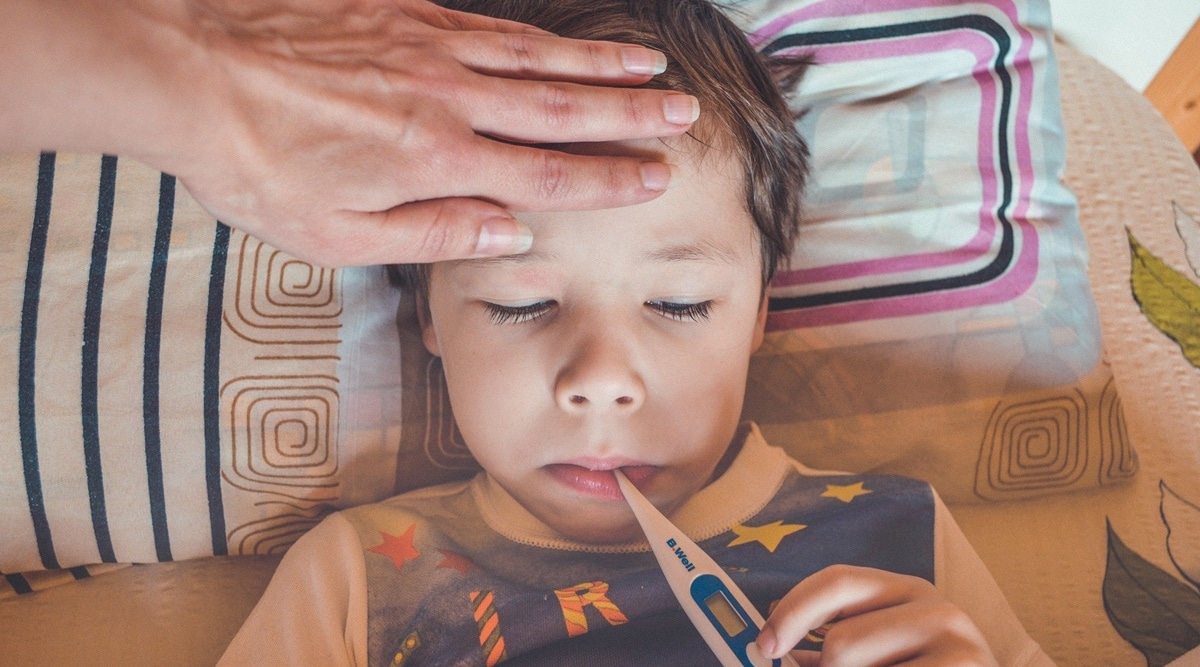Infectious illnesses in children aged 10-12 years: Here’s all you need to know - The Indian Express

All children are entitled to high-quality medical care. As a parent, you must be aware of the most recent treatment guidelines in order to ensure that your child receives the best possible care. Children are vulnerable to infections and illnesses especially when they are exposed to different environment.
Some of the infectious illnesses found in children are-
Chickenpox
Chickenpox is a mildly infectious disease that most children will contract at some point in their lives. It usually begins with feeling ill, a rash, and a fever. Within a day or two, red spots appear and develop into fluid-filled blisters. They eventually dry into scabs and fall off. The spots appear first on the chest, back, head, or neck, and then spread. Unless they are severely infected or picked, they do not leave scars.
Symptoms appear between one to three weeks after infection. The most infectious period is one to two days before the rash appears, but it remains infectious until all of the blisters have crusted over.
To relieve fever or discomfort, take the recommended dose of paracetamol. Ibuprofen is not recommended for children with chickenpox because it can cause skin complications in rare cases.
Bathing, wearing loose, comfortable clothing, and applying calamine lotion may help relieve itching. Scratching should be discouraged or distracted in order to reduce the risk of scarring.
Ear pain
Ear pain in children is common and can be caused by a variety of factors, including ear infection or infection of the skin in the ear, teeth pain radiating up the jaw to the ear, pressure from a cold or sinus infection, and others. Your paediatrician will need to examine your child's ear to tell the difference. If the ear pain is followed by a high fever, involves both ears, or having other symptoms of illness, then antibiotics are the best treatment.
Amoxicillin is the preferred antibiotic for middle ear infections unless there is a penicillin allergy or the infection is chronic or recurring. Many true ear infections are caused by viruses and do not necessitate the use of antibiotics.
Hand, Foot, and Mouth disease
Usually, this contagious viral illness is not serious. Children are most likely to contract it through saliva, blister fluid, and possibly viral shedding through stool.
Symptoms include fever, throat pain, and a lack of appetite. Painful sores in the back of the throat may develop. Skin rash usually appears on the palms and soles. Without treatment, it usually clears up in 7 to 10 days.
Sore throat
They are common in children and can be excruciatingly painful. Antibiotics, on the other hand, are not required for a viral sore throat. In those cases, no special medication is required, and your child should be able to return to normalcy within seven to ten days.
It is critical that your child take the antibiotic for the entire course, even if the symptoms improve or disappear. Steroid medications are not recommended for the majority of cases of sore throat.
Measles
They appear 7 to 12 days after infection. The infectious period is four days before the rash appears to four days after it disappears. Symptoms include bad cold, cough, and sore, watery eyes. Measles is far more dangerous than chickenpox, German measles, or mumps. MMR vaccination is the most effective way to prevent it. Pneumonia and death are serious complications. To relieve the fever and discomfort, give them paracetamol or ibuprofen.
Mumps
The symptoms arise 14 to 25 days after infection. The infectious period is approximately six days prior to swelling in the face and ending approximately 5 days later.
Some of the symptoms include a general sense of being ill, very high temperature, swelling, and pain on the side of the face and beneath the chin. Swelling usually starts on one side and then moves to the other, but this is not always the case.
To relieve pain in the swollen glands, give your child paracetamol or ibuprofen. Check the package for the proper dosage. Give your child plenty of fluids, but avoid fruit juices because they increase saliva flow, which can aggravate your child's pain.
The author is consultant, paediatrician & neonatologist, Motherhood Hospitals, Hebbal, Bengaluru.
For all the latest Parenting News, download Indian Express App.
Comments
Post a Comment